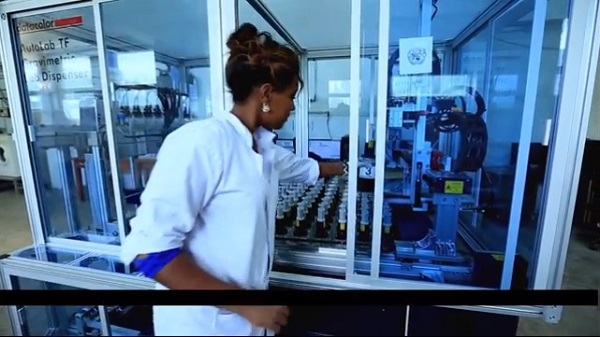
A pilot project by UNIDO aims to help to reduce emissions of Persistent Organic Pollutants (POPs) in Ethiopia’s ever-growing textile manufacturing sector, which have harmful effects on human health and the environment
(UNIDO)–The recent growth of Ethiopia’s textile industry* has been a major driver for the country’s economy. The United Nations Industrial Development Organization (UNIDO) in cooperation with the Federal Democratic Republic of Ethiopia and with funding from the Global Environment Facility (GEF) is promoting greener and sustainable technology for the industry through a pilot project hosted by the Kombolcha Textile Share Company in the north-east of the country.
Reducing Persistent Organic Pollutants (POPs) emissions in Ethiopia’s Textile Industry
———————————————-
This Pilot is under the project entitled “Capacity Strengthening and Technical Assistance for the Implementation of Stockholm Convention National Implementation Plans (NIPs) in African LDCs (African Least Developed Countries) of the Common Market for Eastern and Southern Africa (COMESA) and Southern African Development Community (SADC) sub-regions.” It aims to help to reduce emissions of Persistent Organic Pollutants (POPs), which have harmful effects on human health and the environment.
Source: UNIDO
* Some facts and figures behind textile manufacturing in Ethiopia
- The Ethiopian garment and apparel industry has grown an average of 51% over the last 6 years
- Ethiopia attracted foreign investments of US$1.2 billion in the first six months of the 2016-2017 fiscal year, dominated by Chinese companies
- Out of the 124 foreign investors that expressed an interest in Ethiopia’s textile and clothing sector over the past three months, 71 were from China
- For example, Jiangsu Sunshine Group, which deals in wool textiles and garments, is investing close to US$1 billion in Ethiopia
- Ethiopia has a target to generate 30 billion U.S. dollars in export from the textile and apparel sector by 2030 (according to Bogale Feleke, Ethiopian Deputy Minister of Industry) and establish a foundation for further growth of the strategic heavy industries which finally enable Ethiopia to become an industrialized country by 2025 (according to GTP II)
- According to the World Investment Report, Ethiopia is one of the top performing African countries in FDI flow, registering a 46% increase in 2016, especially in textile sector, though FDI flows to Africa continued to decline
- One of the main reason Ethiopia has become the top choice for investors is the country’s abundant and inexpensive labor force (monthly pay for a factory labor: $50 to 60 in Ethiopia, compared with $140 to $160 in Kenya, $70 to $90 in Bangladesh, $150 to $170 in Vietnam and $400 to $500 in China).
